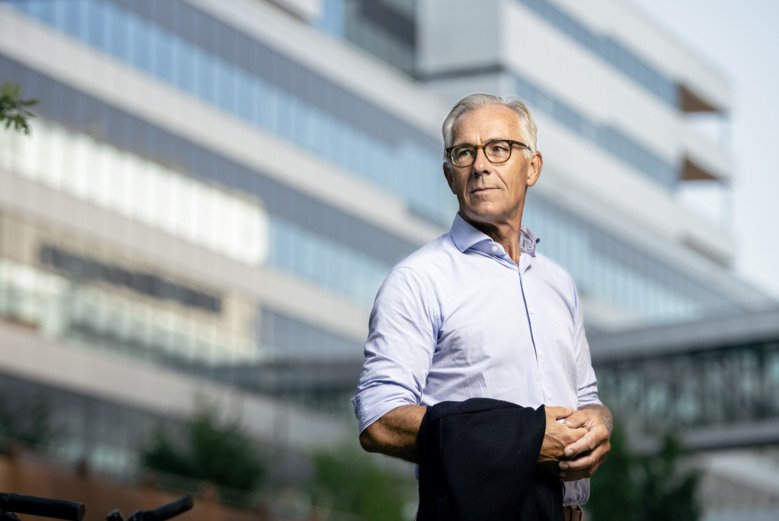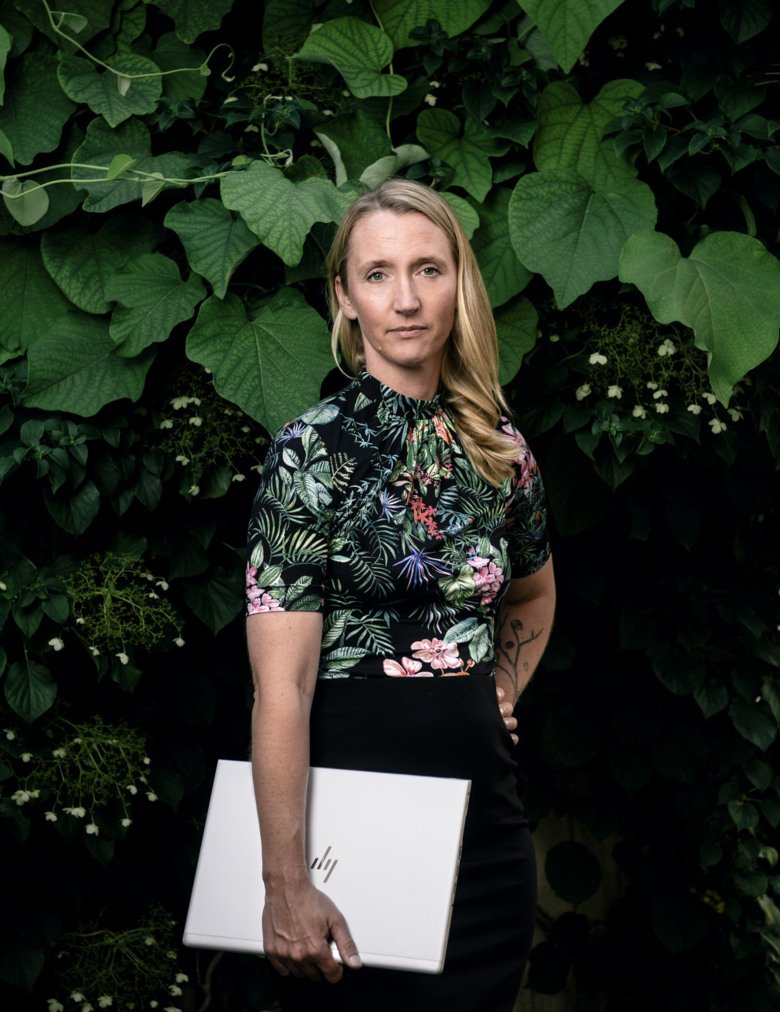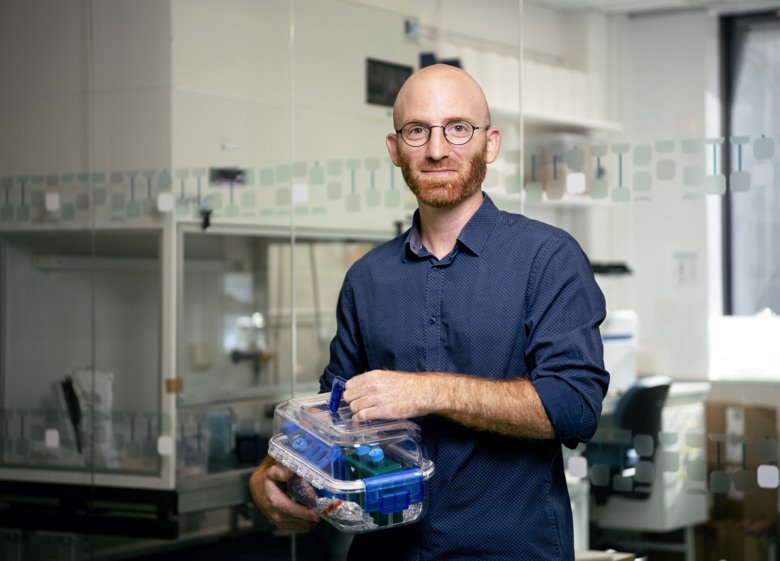They changed track because of corona
When the coronavirus pandemic struck, a great many researchers put aside their current projects to devote themselves completely to the new virus. Meet three of those whose working life took an unexpected turn.
Name: Jan Albert
Title: Professor of infectious disease control specialising in virology at the Department of Microbiology, Tumour and Cell Biology, Karolinska Institutet. Senior physician at Karolinska University Hospital.
Occupation during the corona era: Head of Karolinska Institutet’s Expert Group on COVID-19.

“In the beginning, media questions were taking up almost half of my working day”
“There were a few of us senior doctors at Karolinska University Laboratory who realised back in January that the disease would probably reach our shores, long before society as a whole understood it. We planned for a pandemic and I was prepared for the fact that many people, including my loved ones, would contract COVID-19, but likewise that the vast majority would survive.
At the same time, my brother’s best friend was one of the first people in Sweden to be infected. He was seriously ill and required intensive care before he could be discharged. It was extremely worrying when he fell ill.
I lead Karolinska Institutet’s Expert Group on COVID-19 as well as working as a doctor and conducting virtually all of the virus teaching at Karolinska Institutet, which has been from at distance since the spring. This has involved a heavier workload than normal but has felt important and stimulating. In the beginning, as the infection started to spread in earnest, media questions were taking up almost half of my working day; however, I consider it one of my duties to answer questions from the media – and I don’t find it uncomfortable.
One day I was forced to appear on television to announce that the results we had presented on the previous day were unfortunately incorrect. There were unfortunate risk factors in the data that we were unaware of. Still, I didn’t find it particularly difficult to admit and it was well received.
I have noticed a few glances when I am out walking. People recognise me and a few times I have been approached.
My field of research is actually centred on HIV and enteroviruses; that’s been on hold but I will be resuming it now. Research on COVID-19 is continuing, as is the Expert Group’s work. There may well be some media as well, depending on events.”
Name: Marie Holmqvist
Title: Docent in epidemiology at Karolinska Institutet’s Department of Medicine, Solna.
Occupation during the corona era: Relieving on the COVID-19 ward.

“It became clear that first and foremost I am a doctor.”
Before the pandemic I was mostly involved in research but when doctors were needed for a COVID-19 ward I was keen to contribute. In the early days it was mostly newly infected patients requiring oxygen or drips. During the late spring, we began to see more patients arriving after a long period in the ICU who needed to practice feeding themselves, walking and coping with the bathroom independently.
It was a difficult spring, not least due to the hard work, never mind the emotional strain of finding oneself in a situation we knew so little about. We had seen that documentary from China, in which doctors were running around in panic.
We had also received warnings from Italy that we faced some really tough decisions. The most difficult thing was the fear that healthcare would lose control. Thankfully, that didn’t happen, although we couldn’t know that from the beginning. Nevertheless, from a professional perspective it has been exciting, even if at times the situation has been dreadful.
I have always primarily considered myself a researcher; I am an epidemiologist and try to discover how we can reduce mortality and comorbidity for the diseases myositis and systemic sclerosis. During the spring it became clear that first and foremost I am a doctor.
Many patients were hospitalised for a considerable time and to be able to play a part in their health and wellbeing was a special experience. Should I be needed again I will do my bit in healthcare, but otherwise my primary focus will be on research. Actually, I should have travelled to Canada to conduct research, but the trip was cancelled.”
Name: Martin Cornillet
Title: Research coordinator at the Center for Infectious Medicine (CIM) in Huddinge.
Occupation during the corona era: Coordinating responsibility for collecting blood samples from patients with COVID-19.

“Suddenly, I find myself working for all mankind”
“Shortly after COVID-19 arrived in Sweden, my laboratory took the initiative to build up a biobank of blood samples from severely and moderately ill patients. I have overall coordinating responsibility for this. This has involved everything from planning how to transport samples from the clinic without wasting masks and visors to establishing how much freezer space would be required.
The Center for Infectious Medicine’s sample collection in Huddinge serves two purposes; firstly, even at this early stage we need to establish why some people become more ill than others and secondly, to store samples for future research. In ten years from now, it will be valuable to have samples in the freezer if, for example, we find ourselves facing a new pandemic of a similar virus.
The unique thing about our collection is that we have used a special technique to preserve the samples that allows the study of each individual immune cell. We think this will be interesting going forward. Sometimes we have several samples from the same patient; for example, from patients who were initially moderately ill but whose condition suddenly deteriorated. At the moment we have around 300 samples.
My usual research projects, which all deal with trying to understand the immune system, specifically various diseases of the liver, were already on pause during March, since when I have been one-hundred-percent focused on COVID-19 research. I feel that what I do has great meaning. My feeling now is that I don’t simply work for my own sake, for the sake of my lab or for the country’s sake; suddenly, I find myself working for all mankind.”
As told to: Maja Lundbäck, first published in Swedish in the magazine Medicinsk Vetenskap No 3/2020
